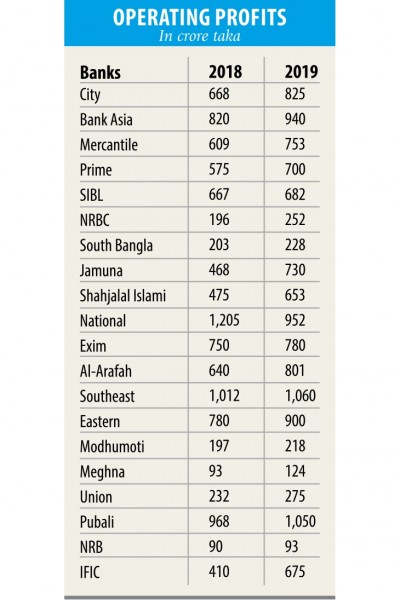Banks bracing for big hit on profits

Banks will have a hard time logging in profits in the coming days because of the latest government decision to fix interest rate for lending at 9 percent and for deposit at 6 percent.
Although the government has announced splitting its funds equally between the state-run banks and private ones, the latest decision may create a haphazard situation for them nevertheless, said experts and a good number of managing directors of banks.
“Banks will have to implement the new rates as per Prime Minister Sheikh Hasina’s instruction,” Finance Minister AHM Mustafa Kamal told reporters after a meeting with private banks’ sponsors and managing directors at the headquarters of Bangladesh Association of Banks on Monday.
While the bank sponsors went along with the decision, the managing directors said it will be much too difficult to implement.
For instance, banks will have to incur a large amount of loss from their retail lending programme if they set 9 percent interest rate on home, auto and personal loans as well, said managing directors of three banks wishing not to be named due to the sensitivity of the matter.
A good number of employees is required to operate the retail programme, and the cost of monitoring and supervision on retail lending is much higher than corporate lending, they said.
“The decision will immensely benefit the economy,” said Mashrur Arefin, managing director of City Bank, adding that the authority concerned will have to extend some support to the banking sector.
When his attention was drawn to the government promise to allocate Tk 202,000 crore of its funds to all banks based on their paid-up capital, he said: “I need to see some formal confirmation of that before I change my deposit rates. I need to know how much I may get and when.”
The 6 percent interest rate will ward off savers from the banking sector given the existing inflation rate, which will create a severe liquidity crisis for lenders, said Mustafizur Rahman, a distinguished fellow of the Centre for Policy Dialogue.
“Default loans in banks have been on the rise for months. The trend is not suitable for banks to bring down the lending rate.”
As of September, default loans in the banking sector stood at Tk 116,288.31 crore, up 23.82 percent from nine months earlier, according to data from the central bank.
Banks face a huge burden of provisioning because of the large volume of the default loans, which erode their capacity to give out loans, Rahman said.
“Default loans will have to be brought down drastically to implement the single digit lending rate,” Rahman said, adding that corporate governance in the banking sector needs to be strengthened in tandem.
The central bank will have to beef up its monitoring on the banking sector with a view to strengthening the financial health of lenders. And the government must give full autonomy to the central bank to do so.
If the banks try to implement the single-digit interest rate without improving their health, profitability will decline alarmingly, Rahman added.
Khondkar Ibrahim Khaled, a former deputy governor of the central bank, echoed the same. The forthcoming central bank notice on the matter will go against its own policy, he said.
The central bank earlier took the decision to not intervene in banks’ decision when they set the interest rate. But now it is dictating the rate, which will not be good for banks, Khaled added.
Time will tell whether the decision will help banks, said Ali Reza Iftekhar, the newly elected chairman of the Association of Bankers, Bangladesh, a forum of bank MDs.
“We are waiting for the central bank’s notice on this. Then we will get an idea of the actual situation,” said Iftekhar, who is also the MD of Eastern Bank.
